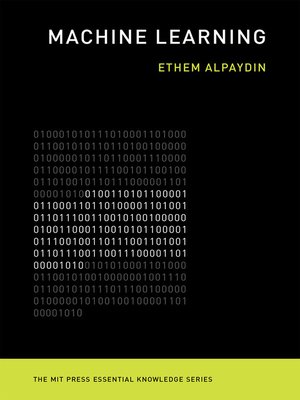
Sign up to save your library
With an OverDrive account, you can save your favorite libraries for at-a-glance information about availability. Find out more about OverDrive accounts.
Find this title in Libby, the library reading app by OverDrive.



Search for a digital library with this title
Title found at these libraries:
| Loading... |
Today, machine learning underlies a range of applications we use every day, from product recommendations to voice recognition—as well as some we don't yet use everyday, including driverless cars. It is the basis of the new approach in computing where we do not write programs but collect data; the idea is to learn the algorithms for the tasks automatically from data. As computing devices grow more ubiquitous, a larger part of our lives and work is recorded digitally, and as “Big Data” has gotten bigger, the theory of machine learning—the foundation of efforts to process that data into knowledge—has also advanced. In this book, machine learning expert Ethem Alpaydin offers a concise overview of the subject for the general reader, describing its evolution, explaining important learning algorithms, and presenting example applications.
Alpaydin offers an account of how digital technology advanced from number-crunching mainframes to mobile devices, putting today's machine learning boom in context. He describes the basics of machine learning and some applications; the use of machine learning algorithms for pattern recognition; artificial neural networks inspired by the human brain; algorithms that learn associations between instances, with such applications as customer segmentation and learning recommendations; and reinforcement learning, when an autonomous agent learns act so as to maximize reward and minimize penalty. Alpaydin then considers some future directions for machine learning and the new field of “data science,” and discusses the ethical and legal implications for data privacy and security.






